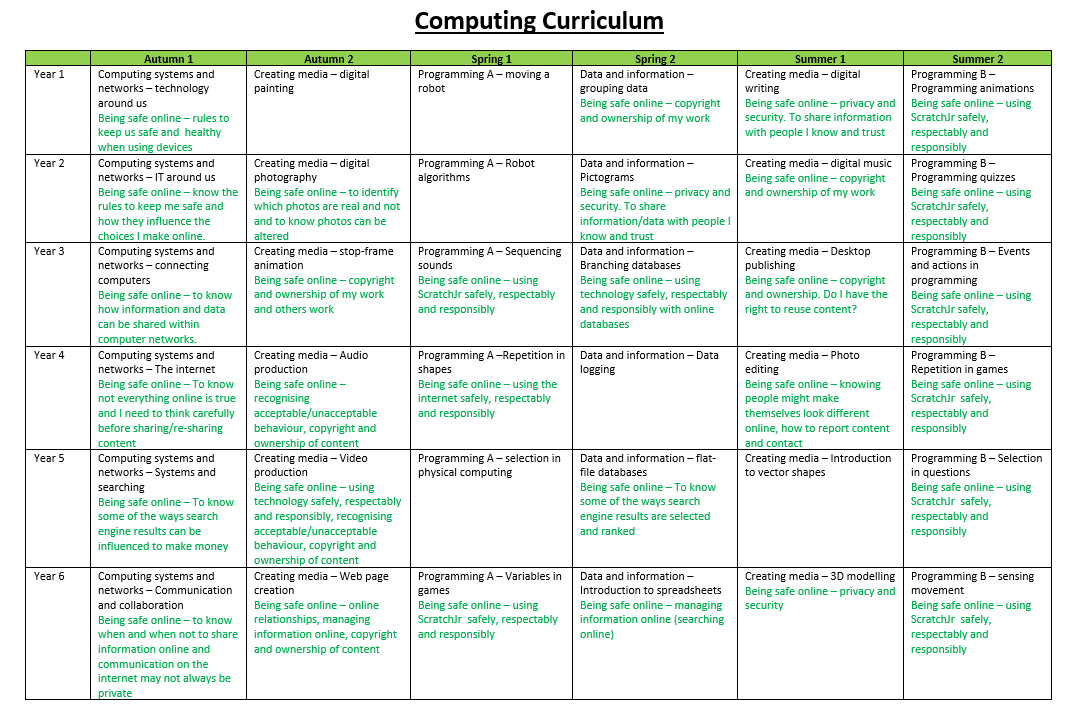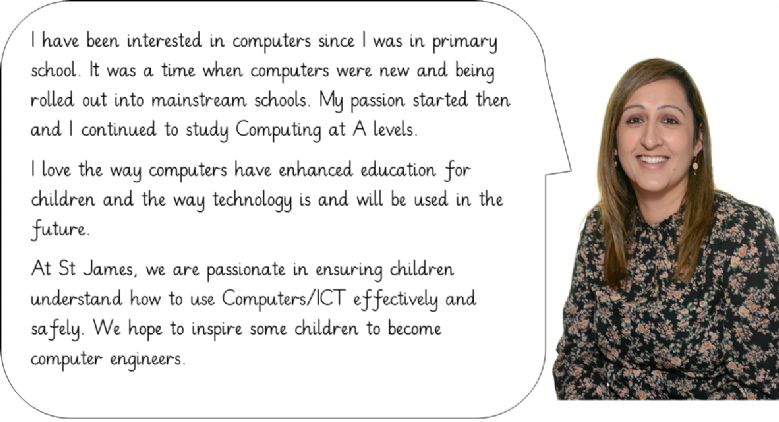
Computing

Intent
At St James, we value the importance of Computing knowledge and skills that our children need to be successful in the future. This is especially important with today’s society, where information technology is heavily used by over half of the world’s population.
Our curriculum is built from the three strands of Computer Science, Information Technology and Digital Literacy and follow the NCCE scheme which is sequential, building on previously learnt knowledge and skills. Children can develop their skills and evaluate the effectiveness of their work through key areas of learning: Computing systems and networks, creating media, data and information and programming throughout the curriculum. We also revisit and embed the importance of keeping safe online from EYFS to Year 6.
Our intent for the children by the time they leave us is to:
- To understand the importance of computing within the wider world and how it is used for everyday life.
- To have computing foundation skills to equip them in the future.
- To problem-solve and reason within programmes and algorithms they have created.
- To know how to keep safe online and what to do when they feel unsafe.
To achieve this at St James, we as teachers pride ourselves in ensuring that our children are provided with many opportunities to be successful.
Implementation
At St James, we follow the NCCE scheme delivered by STEM because it follows a pedagogy that revisits previous learning and vocabulary and builds on this with new knowledge, new vocabulary and skills that cover the National Curriculum.
Each year group is taught through discrete Computing lessons by the teacher. All teachers and teaching assistants are aware of how the curriculum and resources are beneficial in helping to teach the children in our school. Activities in discrete lessons are progressive through each term and across year groups which are sequenced and progressive across the key stages and build on prior knowledge all of the time. The lessons are adapted if and where necessary to ensure all children are included in the lessons to attain fundamental basic skills in computing.
There is a fair balance between plugged and unplugged lessons that allow children to develop their critical thinking skills and computational skills through puzzles and games. Online safety is promoted through the curriculum as children learn about networking and sharing content online across both key stages. Throughout the other topics, online safety is revisited and reinforced to ensure our children have a comprehensive understanding of how to stay safe on all devices. It is also promoted through themes during anti-bullying week and Safer Internet Day celebrated in February. Posters from National Online Safety are uploaded onto our website to advise parents on the current online trend to keep our children safe online whilst at home.


